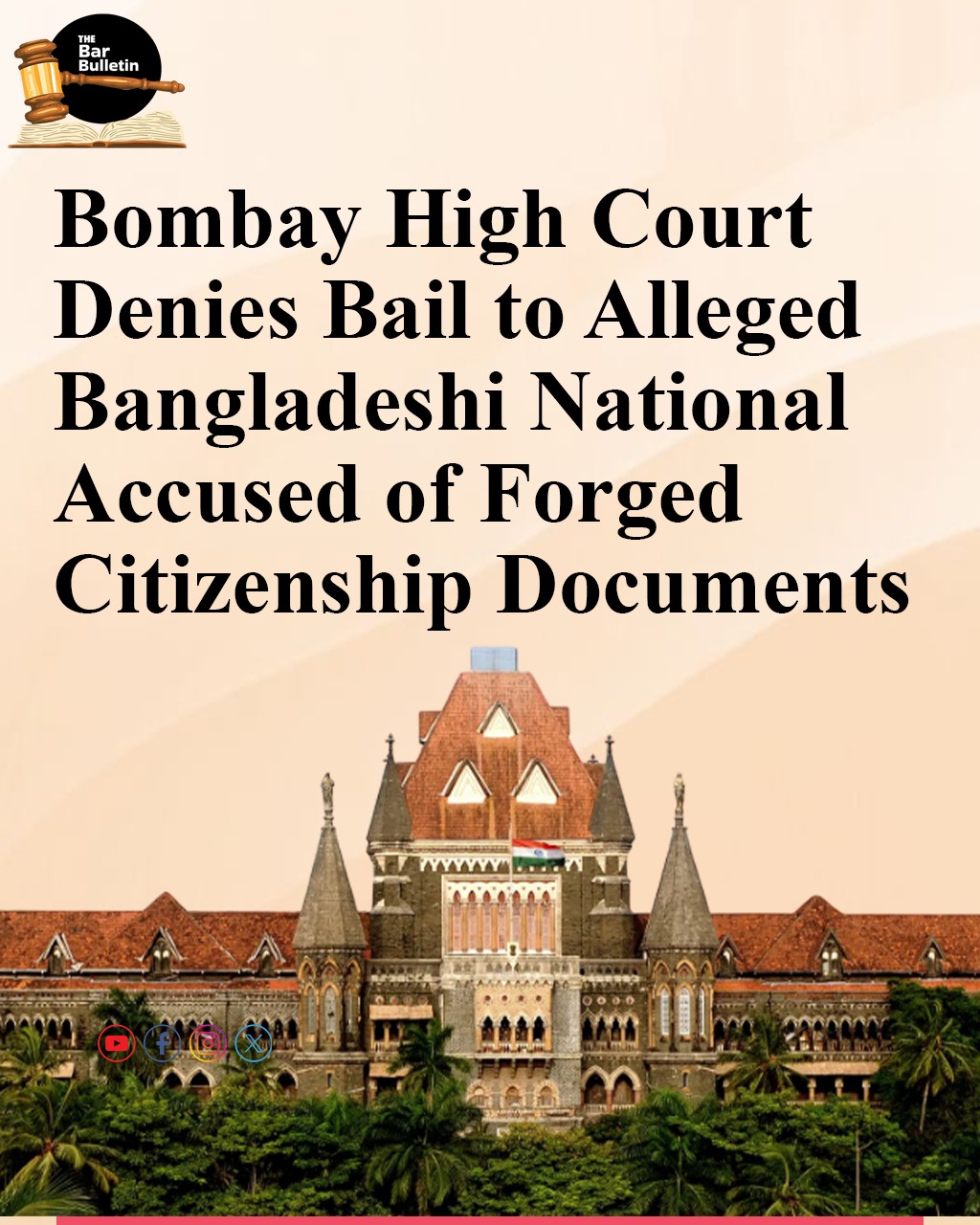The Bombay High Court has rejected the bail application filed by the applicant under Section 439 of the Code of Criminal Procedure, 1973 (Cr.P.C.) for offences punishable under Sections 335, 336(3), and 340 read with Section 3(5) of the Bharatiya Nyaya Sanhita, 2023 (BNS), along with offences under Sections 3(a) and 6(a) of the Passport (Entry into India) Act, 1950 and Sections 3(1), 3(2), and 14 of the Foreigners Order, 1948. Justice Amit Borkar held that when the investigation is at a crucial stage, and serious allegations involving national security, illegal entry, and use of forged government documents are involved, the Court finds it neither proper nor prudent to enlarge the applicant on bail at this juncture.
According to prosecution, the applicant was alleged to have entered India without valid passport or travel documents and deliberately suppressed his foreign nationality by creating and using forged Indian identity documents such as Aadhaar Card and PAN Card. He falsely showed himself as an Indian citizen, misrepresenting his status and obtaining the Aadhaar Card through fabricated documents. It was further observed that, at the time of apprehension, a mobile phone was found with digital copies of birth certificates of the applicant and his mother, allegedly issued by Bangladeshi authorities, raising strong prima facie suspicion of his Bangladeshi origin and illegal entry. The prosecution submitted that verification of the Aadhaar card’s genuineness is still awaited from UIDAI, currently held up pending High Court approval. Investigation also revealed frequent contact with multiple Bangladesh-linked numbers, with IPDR and CDRs showing extensive cross-border communication, adding to the seriousness of the offence and supporting allegations of foreign origin and illegal stay.
The learned Advocate for the applicant submitted that he was a bona fide Indian citizen and no conclusive evidence proved he was a Bangladeshi national. He argued that the alleged forged documents had already been seized, and continued custody was unnecessary. The birth certificate found on the applicant’s phone, relied on by the prosecution, was unverified, did not mention the applicant’s name, and came from an unidentified WhatsApp source. The Advocate added that the applicant had health issues and held multiple valid Indian documents linked to tax records, bank accounts, and utilities. He was a civil contractor in Thane since 2013 and urged bail.
The Court observed that, when India became independent, the rules in Part II temporarily decided the citizenship status of people as on 26 January 1950, but also gave Parliament the power, under Article 11, to make new citizenship laws in the future. Parliament then passed the Citizenship Act, 1955, to create a permanent and complete system for acquiring citizenship, losing it, and dealing with all other related matters. It further held that, merely having documents such as an Aadhaar Card, PAN Card, or Voter ID did not, by itself, make someone a citizen of India. With official confirmation on Aadhaar and other documents still pending, and given the serious risk of absconding, misuse of the system, destruction of evidence, or influencing witnesses, the Court found that the prosecution’s concerns were real. It observed that the applicant had produced no verified proof of Indian citizenship, and mere possession of Aadhaar, PAN, or Voter ID without proof of lawful issuance is insufficient. At the bail stage, the Court must be satisfied that there was at least a prima facie basis for the claim of citizenship before granting relief.
Accordingly, Justice Borkar believed that the fear expressed by the prosecution was not an empty or imaginary fear as it was supported by the applicant’s alleged past actions and the serious nature of the accusations. The danger of the applicant running away from the law or interfering with the investigation was real. Therefore, the application for regular bail was rejected. However, the Court allowed the applicant to revive his request for bail if the trial was not concluded within a period of one year from today.
Apperances:
For the applicant: Mr. Jyotiram S. Yadav.
For the respondent-state: Mrs. Megha S. Bajoria, APP.
![]()



